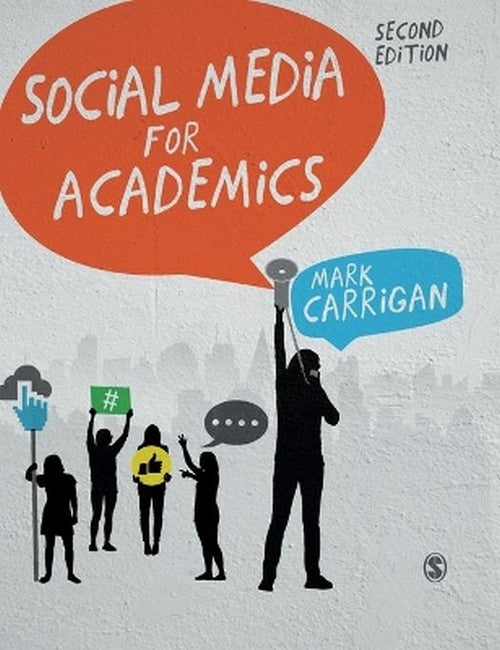Mark Carrigan is a Lecturer in Education at the University of Manchester where he is programme director for the MA Digital Technologies, Communication and Education (DTCE) and co-lead of the DTCE Research and Scholarship group. Trained as a philosopher and sociologist, his research aims to bridge fundamental questions of social ontology with practical and policy interventions to support the effective use of emerging technologies within education. He has written or edited eight books, including Social Media for Academics, published by Sage and now in its second edition. He is a convenor for the British Sociological Association's Digital Sociology group which he co-founded in 2012. He jointly coordinates the Critical Realism Network while being active in the Centre for Social Ontology and a trustee of the Centre for Critical Realism. He is a board member for a range of publications, including Civic Sociology, the Journal of Digital Social Research and Globalisation, Societies and Education.
Request Academic Copy
Please copy the ISBN for submitting review copy form
Description
Chapter 1: Social media and digital scholarship Chapter 2: using social media to publicise your work Chapter 3: Using social media to build your network Chapter 4: Using social media to manage information Chapter 5: Using social media for public engagement Chapter 6: The dark side of social media Chapter 7: Professional identity in an age of social media Chapter 8: Communicating effectively online Chapter 9: Finding the time for social media Chapter 10: Social media and the future of the university
Mark Carrigan is a leading authority on the topic of digital scholarship. This book will definitely sharpen your sense of what social media can do for academics and academic work. Carrigan does a great job of demystifying social media for newcomers to the fray, while also prompting veterans to reassess how (and why) they post, tweet and share their scholarship. A great reminder to switch off your device and reflect critically on the nature of scholarship in the digital age. -- Neil Selwyn Three years on from Carrigan's first edition of Social Media for Academics he has once again captured everything you need to know right now about this phenomenon through a higher education lens. He gives solid practical advice backed up by evidence, like how to employ social media in an impact driven environment whilst avoiding its pitfalls. -- Andy Tattersall A thoughtful and thought-provoking exploration of what it means to be a scholar in the digital age. All academics interested in how social media produce knowledge and complicate traditional models of knowledge production should read this book. The internet as both text and organic growth is set out for all to see. -- Hannah Culik-Baird This updated edition of Mark's compelling and pragmatic guidebook makes a clear and extensive case for how and why social media can work in many facets of daily academic life, whilst also grappling with the emerging and ongoing pitfalls and problems facing scholars in a digital age. #RequiredReading -- Harry T Dyer Social Media for Academics is an insightful introduction to the benefits, challenges, and complexities of being an academic online. Carrigan's easy-to-read and comprehensive guide explores social media from a range of perspectives, filling a much needed gap within academic development literature. The expanded second edition widens the discussion, providing thoughtful and critical discussion on academic identity, post-trust, and the role social media will play in future universities. A must read for all researchers, lecturers, and Higher Education Professionals. -- Kieran Fenby-Hulse Both young academics -- well versed in the mechanics of social media -- and more senior scholars will find the book interesting and provocative, and many will find useful new ways of presenting and discussing their work using the resources created by social media platforms. Mark Carrigan is an astute and well-informed follower of the topic of the rising role of social media in the academic world, and the book is well worth a close reading. And it raises an interesting question: what would Socrates' Twitter stream have looked like? -- Daniell Little

